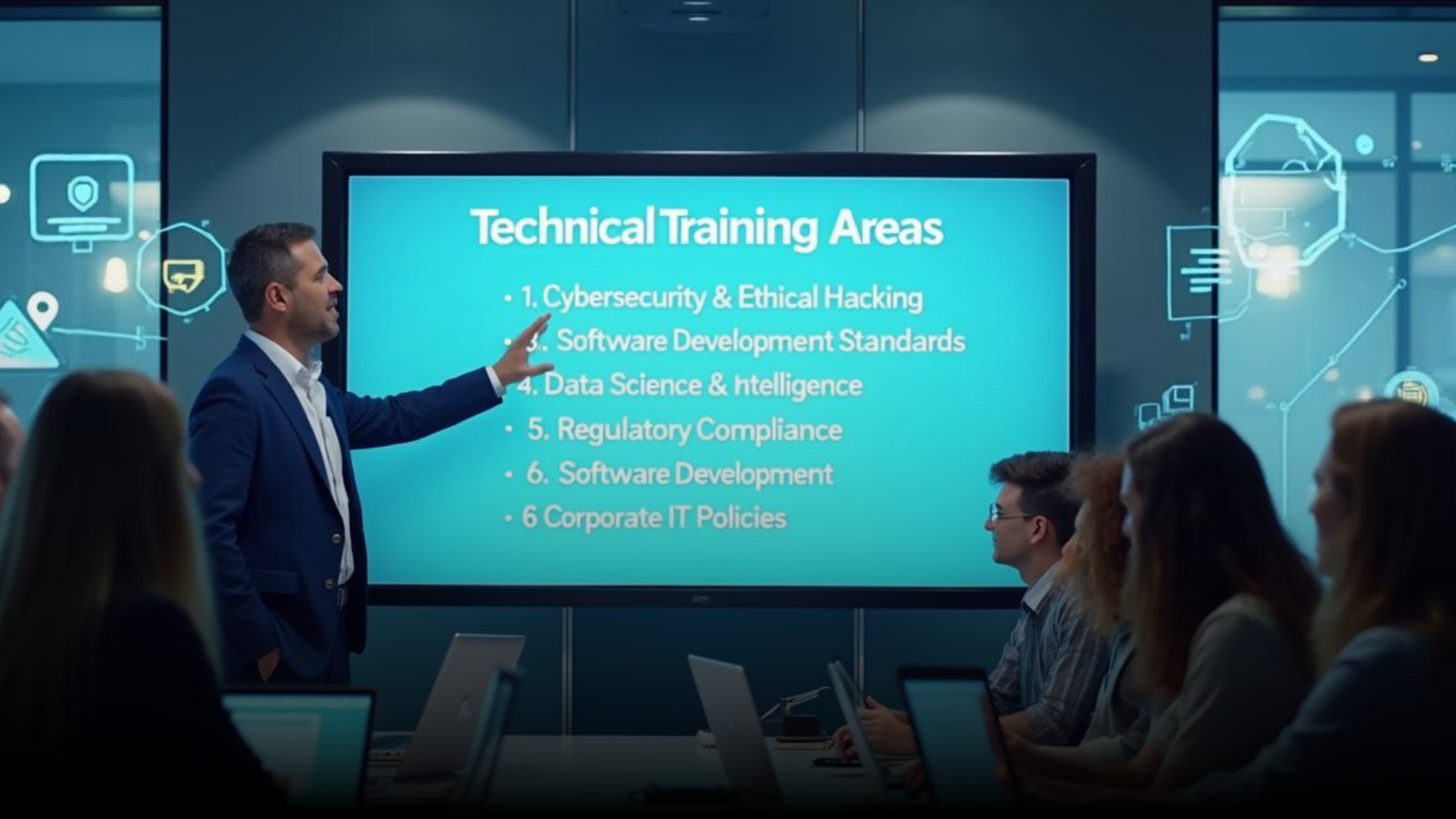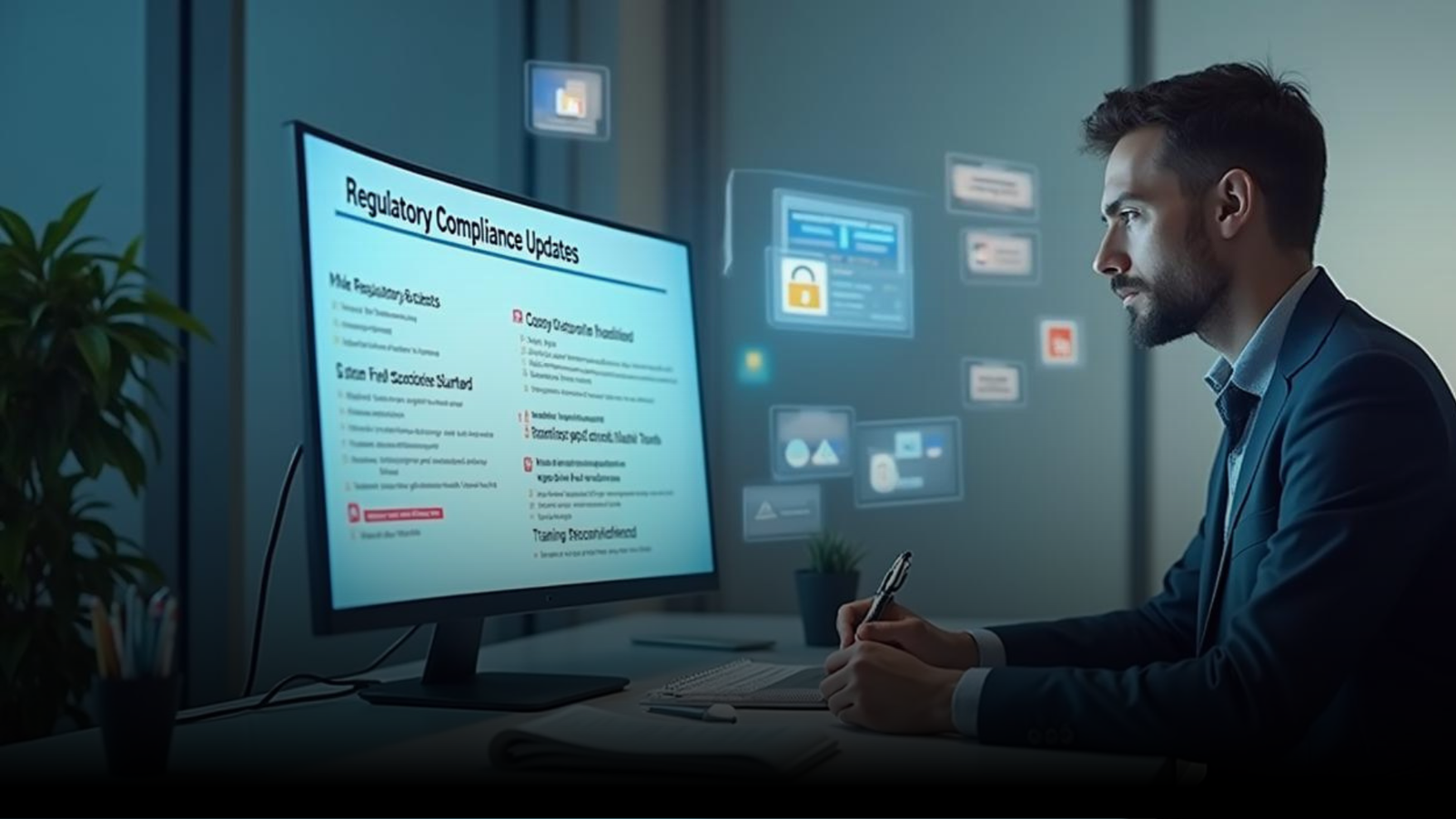
Introduction: Why Technical Training & Compliance Matter in IT
In the rapidly evolving world of information technology, technical training and IT compliance are
essential for professionals who wish to stay ahead. Businesses rely on IT professionals to uphold security,
efficiency, and regulatory standards. Failing to meet these requirements can lead to security breaches,
legal complications, and operational inefficiencies. This guide explores the critical areas of technical
training and IT compliance, helping IT professionals build successful, future-proof careers.
The Role of Compliance in IT: Ensuring Security & Legal Adherence
IT compliance refers to adhering to laws, regulations, and corporate policies governing information
technology usage. It ensures organizations remain legally compliant while maintaining security standards.
Compliance requirements may vary by industry, but key components often include:
• Cybersecurity best practices
• Software development standards
• Corporate IT policies
• Regulatory compliance for industry-specific operations
Non-compliance can lead to severe consequences such as legal penalties, financial losses, and
reputational damage. Therefore, IT professionals must be well-versed in technical training to keep up
with compliance mandates.
Key Technical Training Areas for IT Professionals
Staying updated with technical training is vital for IT professionals. Here are some essential training
areas:
1. Cybersecurity & Ethical Hacking – Understanding cybersecurity best practices and how to
identify vulnerabilities.
2. Cloud Computing – Mastering platforms like AWS, Azure, and Google Cloud.
3. Software Development Standards – Following coding best practices and security protocols.
4. Data Science & Artificial Intelligence – Leveraging AI-driven insights to enhance IT
operations.
5. Regulatory Compliance – Staying updated with compliance laws and best practices.
6. Corporate IT Policies – Implementing best IT governance practices within organizations.
Cybersecurity & Data Protection: Staying Compliant in the Digital Age
Cybersecurity threats are constantly evolving, making technical training in security and compliance a
necessity. To ensure IT compliance, professionals should focus on:
• Implementing cybersecurity best practices like multi-factor authentication and encryption.
• Following corporate IT policies to prevent data breaches.
• Regularly updating security patches and software.
• Conducting risk assessments and penetration testing.
• Ensuring regulatory compliance with data protection laws such as GDPR and HIPAA.
Understanding IT Policies & Industry Standards
IT policies define the internal guidelines for managing IT resources. These policies include:
• Acceptable Use Policies (AUPs) – Defines how IT assets should be used within an organization.
• Data Protection Policies – Ensures that sensitive data is securely stored and accessed.
• Software Development Standards – Maintains quality and security in software projects.
• Incident Response Policies – Guides IT teams on handling security incidents effectively.
Adhering to these policies ensures IT compliance and helps maintain security and efficiency.
How to Stay Updated with Regulatory Compliance in Tech With compliance regulations frequently evolving, IT professionals must keep themselves updated. Here
are some strategies:
With compliance regulations frequently evolving, IT professionals must keep themselves updated. Here
are some strategies:
• Attending technical training workshops and certification programs.
• Following industry news and compliance updates.
• Engaging in continuous education via online courses and IT compliance training.
• Becoming a member of IT regulatory organizations.
• Regularly reviewing corporate IT policies and adapting to new changes.
The Impact of Non-Compliance: Risks & Consequences Failing to adhere to IT compliance standards can have dire consequences, including:
Failing to adhere to IT compliance standards can have dire consequences, including:
• Legal repercussions – Violations of regulations can lead to hefty fines and lawsuits.
• Cybersecurity breaches – Inadequate compliance can result in data leaks and hacks.
• Loss of business credibility – Customers lose trust in companies that do not follow regulatory
compliance.
• Operational disruptions – Poor IT governance can lead to inefficiencies and downtime.
Proper technical training ensures that IT professionals mitigate these risks effectively.
Best Resources for IT Training & Certification Several resources can help IT professionals stay updated with technical training and IT compliance:
Several resources can help IT professionals stay updated with technical training and IT compliance:
1. Online Learning Platforms – Coursera, Udemy, Pluralsight, and LinkedIn Learning.
2. Certifications – CISSP (Cybersecurity), CISM (Compliance), AWS, Azure, and CompTIA
Security+.
3. Professional Networks – Engaging in IT communities like GitHub, Stack Overflow, and
LinkedIn groups.
Final Thoughts: Building a Future-Proof IT Career with Training & Compliance
To succeed in the IT industry, professionals must prioritize technical training and IT compliance. As
regulations evolve, IT professionals must continuously upgrade their skills to remain competitive.
At wolftechnologies.us, we are dedicated to providing world-class technical training and ensuring IT
compliance. Recognized as the best IT Placement/Staffing company in 2024-2025, we offer cutting-edge
IT services and career support for fresh graduates. With a strong focus on skill development and industry
best practices, wolftechnologies.us ensures that IT professionals are fully equipped to thrive in a
competitive landscape.
For IT professionals looking to excel in their careers, investing in technical training and staying
compliant is not just an option—it’s a necessity. Stay informed, get trained, and build a future-proof IT
career today!